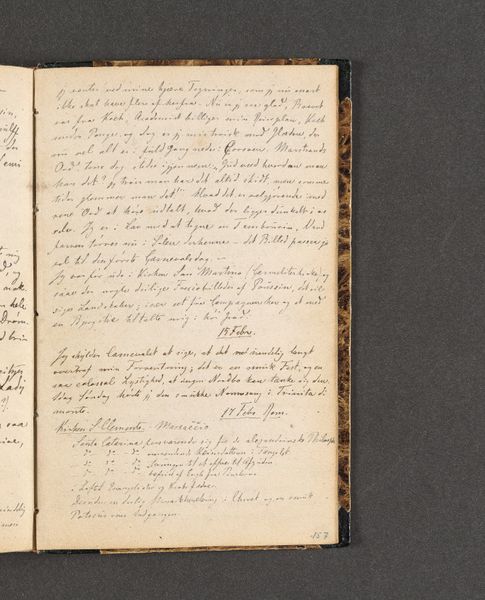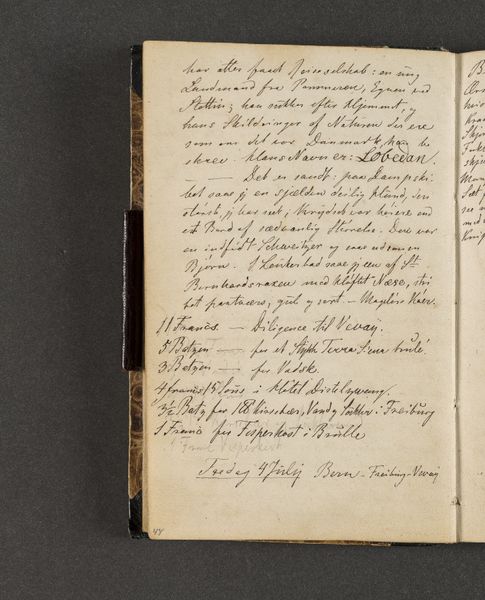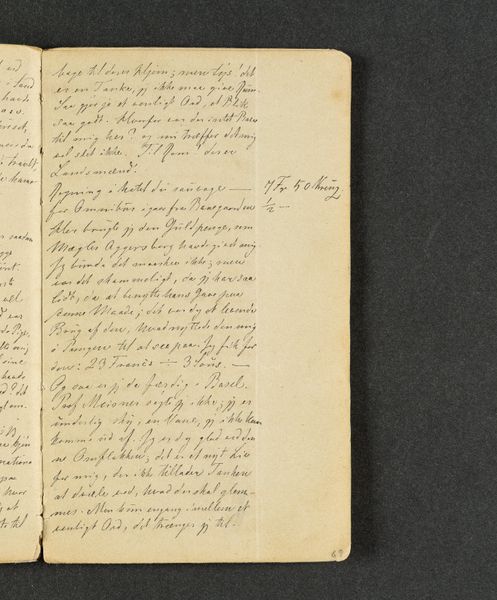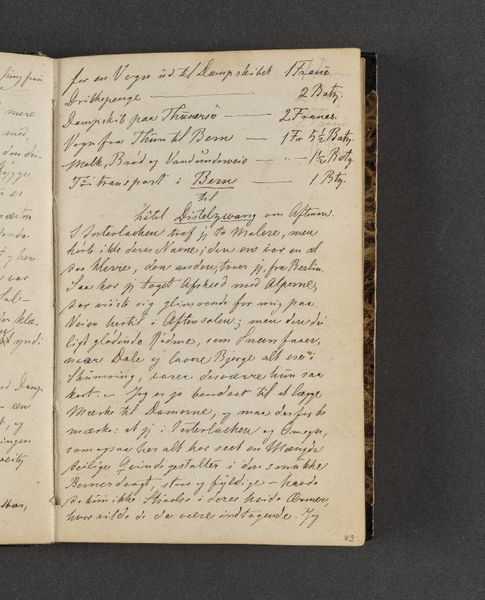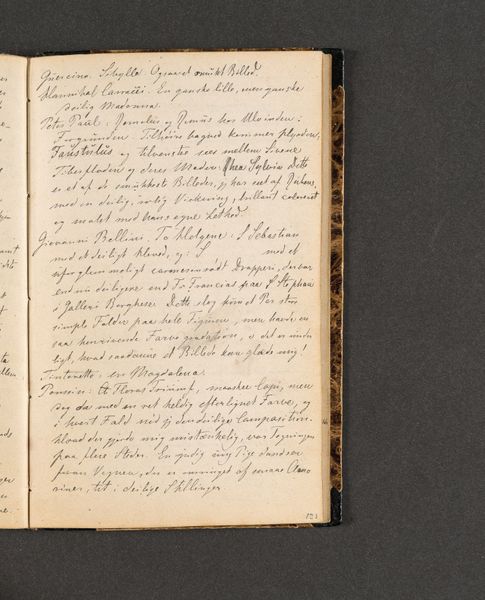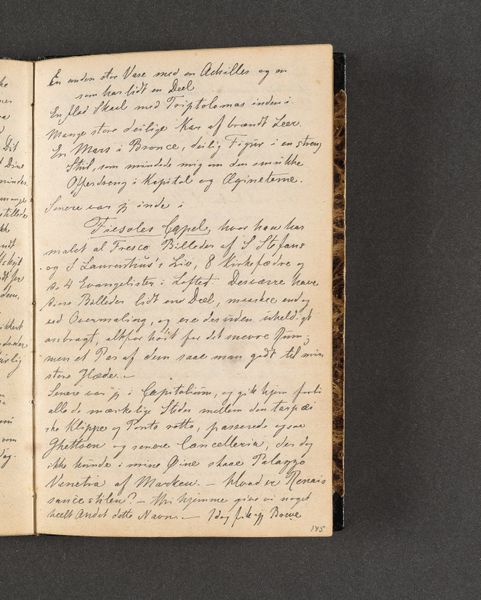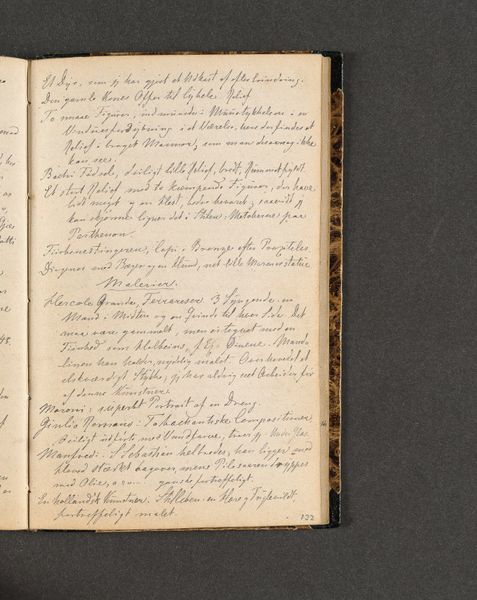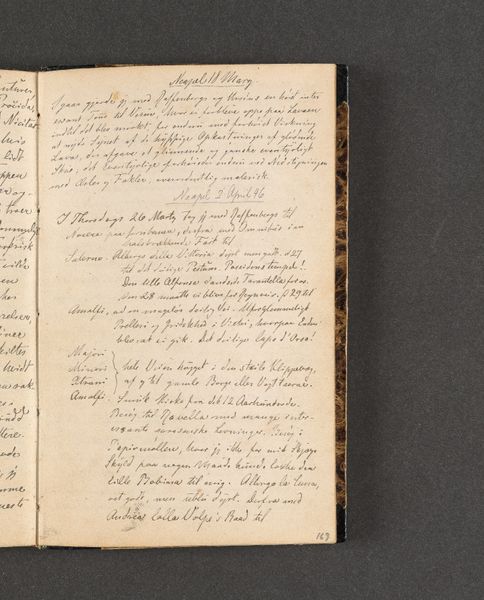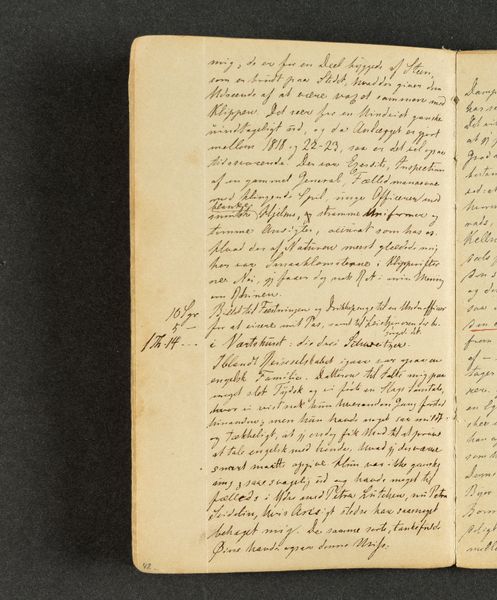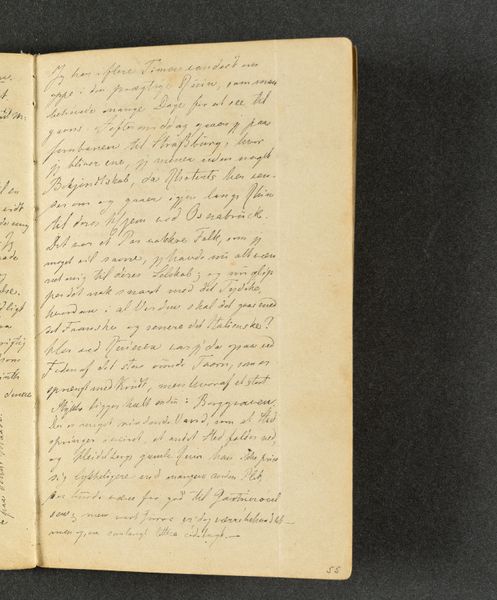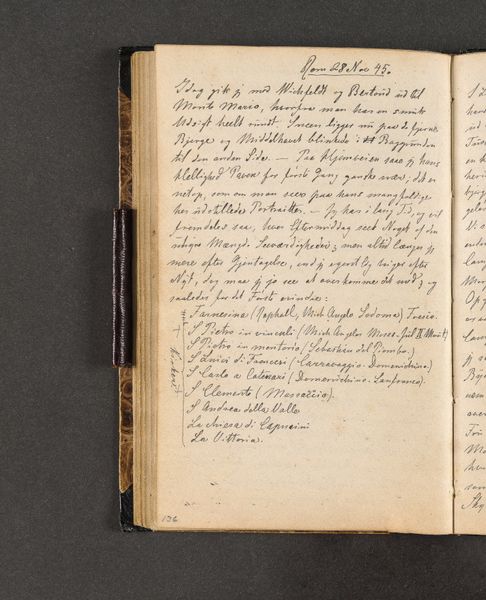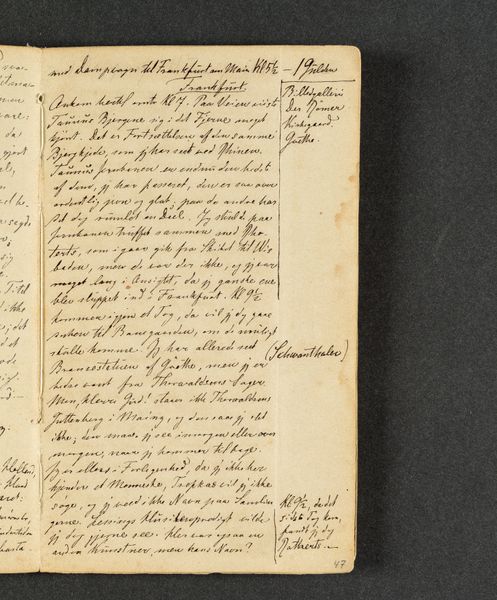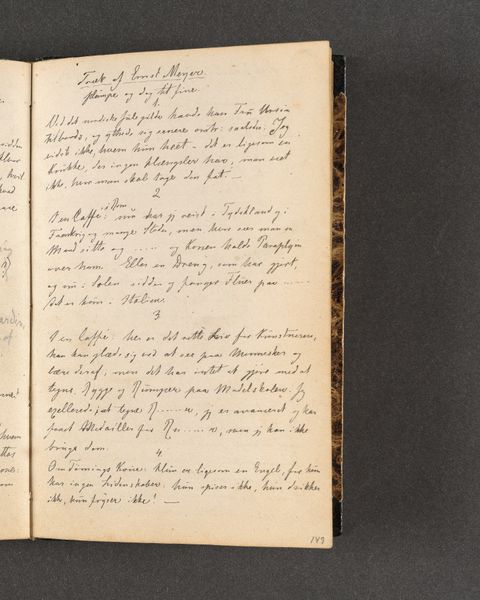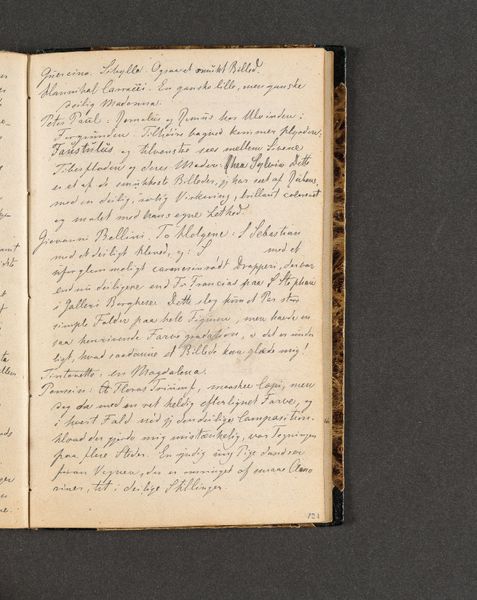
drawing, paper
#
portrait
#
drawing
#
aged paper
#
sketch book
#
hand drawn type
#
landscape
#
personal journal design
#
paper
#
personal sketchbook
#
journal
#
romanticism
#
sketchbook drawing
#
storyboard and sketchbook work
#
sketchbook art
#
design on paper
Dimensions: 163 mm (height) x 98 mm (width) (bladmaal)
Editor: Today we're looking at "Rejsedagbog" by Johan Thomas Lundbye, created in 1845. It's a drawing on paper, part of a sketchbook, actually. The script is incredibly dense, with layers of looping, old-fashioned handwriting that I can't begin to decipher. It reminds me of old maps and historical documents... what stands out to you? Curator: What immediately strikes me is the historical context of the travel journal itself. This wasn't just a personal pastime. The sketchbook, the journal, it all played a significant role in shaping artistic and cultural perceptions of landscape during the Romantic era. Consider how access to travel and the means of documenting it were developing and for whom. Editor: So, the journal itself, the very act of recording one’s experiences, becomes part of a larger narrative? Curator: Precisely. Think about how Lundbye, and artists like him, were participating in constructing ideas about nationhood and cultural identity through these meticulously observed landscapes. It is worth considering what details they chose to include and emphasize in both the visual sketches and the accompanying texts. Editor: It’s almost as if the personal and the political are interwoven in something as simple as a travel diary. I hadn't thought about it that way. Curator: The act of sketching and journaling was a means of asserting a certain kind of cultural authority, especially in relation to nature and place. That carries political weight. Now, how do you think that kind of activity relates to museum collections today? Editor: It completely shifts how I see this, like looking at something not just as a pretty drawing but as a statement, part of a bigger historical conversation about art’s place in the world. Curator: Exactly, and understanding that enriches our appreciation.
Comments
No comments
Be the first to comment and join the conversation on the ultimate creative platform.
